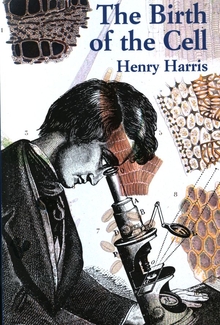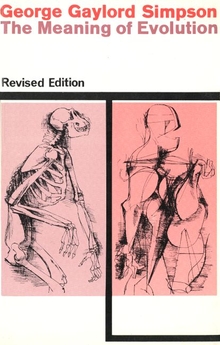The Birth of the Cell
WARNING
You are viewing an older version of the Yalebooks website. Please visit out new website with more updated information and a better user experience: https://www.yalebooks.com
Henry Harris
Focusing on the scientific history of the genesis of the cell doctrine, the author also considers contemporary social and political contexts and shows how these influenced what experiments were undertaken and how the results were represented. He describes the intellectual struggles of pioneers across Europe, including Czech, Polish, and Russian scientists whose contributions have been largely overlooked, and explores their false starts, blind alleys, and detours as well as triumphant verifiable discoveries. The book includes a fascinating collection of photographs—many previously unpublished—that portray those involved in the scientific quest and their observations. This book will not only be a valuable addition to the libraries of science historians and practicing scientists, it will also appeal to general readers interested in the adventure of scientific discovery.
A selection of the Natural Science Book Club
"Harris weaves a most interesting tale, from Leewenhoek and Hooke in the 17th century through the earliest days of the 20th century. . . . This book deserves to be read by anyone with an interest in history or the cell."—Robert E. Peterson, American Scientist
“Henry Harris, one of the world’s leading cell biologists, here provides a strikingly original account of how scientists came to understand that the bodies of all living things are composed of microscopic units that we now call cells. . . . Translating many of these documents into English for the first time, Harris uncovers an authentic version of events quite different from that described in conventional science textbooks.”—Bulletin of Science, Technology & Society
“How the cell doctrine became common knowledge is a fascinating story, and it is told in a lucid and engaging way by a scientist who is well acquainted with the biological literature and has read widely in the original texts from the 17th century to the present day.”—William Shea, Cambridge University Press
“Harris has written a clear, erudite, and balanced history of the development of knowledge of the cell up to the beginning of the 20th century that will appeal to all biologists with an interest in the origins of their subject.”—Anthony A. Hyman, Cell
"Those with a strong interest in the history of science will enjoy the book; it is written not only with panache and style but with attention to detail that one would expect from the Regius Professor of Medicine Emeritus at the University of Oxford. General readers; graduate students; faculty."—Choice
"Those interested in the history of the biological sciences will appreciate the scholarship, biologists will find the science fascinating."—Nathaniel I. Berlin, JAMA
“A solid intellectual survey of the major developments in the history of cytology. Stressing the ideological innovations, such as atomism and mechanistic materialism, rather than technological improvements of the microscope were primarily responsible for advancing cell studies, Harris well chronicles the empirical basis behind changing views of cell structure and function and cell division.”—Marsha L. Richmond, Journal of the History of Biology
“Harris aims to set the record straight on who should really get the credit for discoveries and insights into the nature of cells. . . . While clearly a work of revisionist medical history, this will also give the general reader a useful appreciation of science as the real-world product of politics, personalities, and unfettered imagination.”—Kirkus Reviews
"Harris, a highly respected scientist and historian of science, has written an exceptional history of this seminal period of biology that will surely become the standard."—Library Journal
“Harris . . . narrates the history of the extraordinary intellectual adventure that led us to consider the cells as the basic bricks of living organisms. . . . By the end the reader will have acquired and extremely detailed idea of the origin of every fundamental contribution in the conceptual edifice of cell theory.”—Paolo Mazzarello, Nature Cell Biology
"The Birth of the Cell is a thorough, scholarly, and informative book on the development and establishment of the theory of cellular structure in plants and animals. It covers the 17th, 18th, and 19th centuries and parallels the development of the light microscope and techniques of preparing biologic tissues for microscopical examination. . . . The book is filled with important information. . . . This book will be valuable to anatomists, botanists, cell biologists, and medical and scientific historians. It captures the progress and spirit of an exciting scientific era. It is well referenced and superbly illustrated. . . [This book] will also be an excellent textbook for graduate students in the life sciences."—Charles E. Slonecker, New England Journal of Medicine
"This is an intense, scholarly book. . . . For those interested in the history of biology or for those who want to explore, in great detail, how, 'out of a sea of error and confusion, an approximation to the [scientific truth] finally emerged,’ the book can be a treasure trove of ideas and information."—Nathan Dubowsky, Science Books & Films
"Harris fleshes out a story that goes beyond the brainstorms of Rudolf Virchow, Theodor Schwann, and Matthias Schlieden—who generally garner the credit for cell doctrine. This dissection of 250 years of biological history is built on exhaustive examination of original research papers, old texts, and correspondence."—Science News
"[This is] a book that should be read by anyone concerned with the biological sciences. Particularly those wishing to see the conceptual developments of our scientific understanding of the cell from a historical perspective."—The Lancet
"Whatever it was that led him to replace trite half-truths with the whole truth, we are the fortunate benefactors of his skepticism. He has written an original, detailed and unique piece of meticulous scholarship, well illustrated and easily readable. This small book will interest anyone concerned with any aspect of cell biology and should also reach a wider circle."—Lyne Margulls, Times Higher Education Supplement
“The Birth of the Cell is the best single source for anyone seriously interested in learning about the history of the cell theory. It will remain the standard reference for some time to come.”—Joseph G. Gall, Trends in Cell Biology
Publication Date: April 10, 2000
67 b/w illus.








